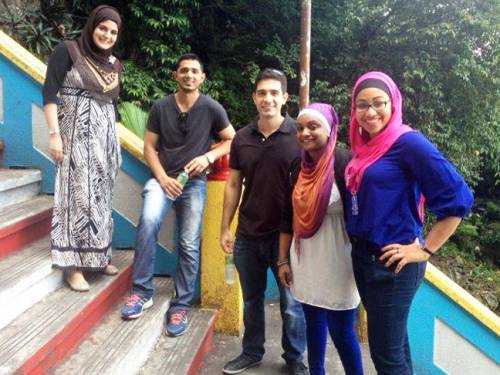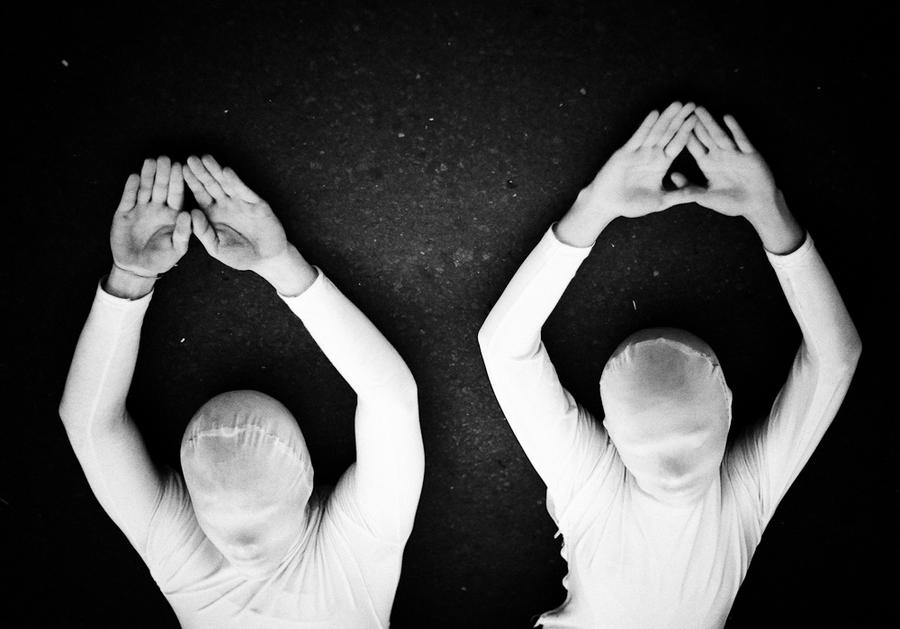Earlier this month I had the honour of presenting at the World of Women (WOW) part of the Sydney Writers Festival. It was quite an inspiring session, with speakers who included the likes of novelist Melissa Luckashenko to a young Iraqi lady who had traveled to Australia seeking asylum.
Find out more about WOW at Sydney here.
The majority of the 'Bites' - strictly ten minutes bites of inspiration and the like - were quite deep and moving. Lucashenko's and Kristi Mansfield's were both quite brutal to be honest, forcing the audience to confront issues of rape and violence occuring on a daily basis to young women in our own cities.
I took a different tack and went for a slightly more light hearted and humourous angle. My piece was a 'Survival Guide for Chicks on Rigs...' (because you know, there are just so many of us!). I started off with a bit of a poem...and I would like to share a little bit of the presentation with you!
Aren't you frightened, they will ask,
Of the men, the remoteness, the difficulty of the task?
Why on earth do you want to do that, they will question
Where as if you were a guy, that wouldn't rate a mention.
The fact of the day is, ladies and gentlemen,
That this guide is not about survival.
We will survive - Gloria Gaynor said so.
It is about thriving and owning our power from the get go.
Ladies and gentlemen, welcome.
Working on the oil and gas rigs, particularly as a woman, is an adventure and a half indeed.
As I am an engineer and love lists and numbers, I've put together a numbered list of suggestions, and I hope you enjoy!
Number 1.
Determine where YOUR line is, how thick YOUR skin is, how much you are willing to let slide. Factor in the 'drilling rig bonus'.
Often when a woman begins working on a rig, the men won't talk to her for some time at all. Don't take it personally, but they are slightly scared themselves (though they will never admit it!). They won't know how to react to you, what they can say around you, how thick YOUR skin is...they know something will be different now that you are here but they don't know HOW that difference will play out.
Let them take the cues from you. You have power here - a power we as women never used to have, and that is the opportunity to set the tone of the conversation.
What is the drilling rig bonus? An amorphous measure that accepts that normal society is quite different to the microcosm that is the drilling rig and so your line might be different in this situation, or might need to be slightly different. Adjust accordingly.
Number 2.
Make the most of being underestimated.
Some of the rig workers may hold the unspoken belief that a woman is less competent or deserving of a role. We all know that is not the case, but use that underestimation to your benefit! Surprise them at being AWESOME at your job and letting your actions speak for themselves. Being really good at your job is a language they understand and WILL respect, particularly out there.
Number 3.
Have a sense of humour
Nothing breaks down barriers like a bit of laughter. Being witty, sharp, or deploying quick, timely ripsotes are always appreciated (but careful not to descend into bullying).
If you aren't a regular standup comedian, try to see the humour in the everyday interactions - because there is plenty. Personally, I am terrible at being witty but I find most everything hilarious. Nothing warms a hardened man's heart more than having a laugh at a joke he cracked
Number 4.
Learn the language.
There is nothing more effective than good communication. For the sake of mirth though, here are some of the phrases I have picked up (the ones used in polite company anyway!).
I'm drier than a dead dingo's donga.
You wana run with the big dogs you gotta pee in the long grass.
They thought I did what?! That's lower than the basic wage.
I'm like a mushroom. I get fed rubbish, everything just slides off me and I only come out in the dark.
Number 5.
Be Flexible, within limits. Don't forget your rights.
The guys working in the field will appreciate flexibility, humour and cues taken from you, as illustrated previously. A level of flexibility is required, as fighting every single battle is not only ineffective, it is exhausting.
However, you must also be cognizant of your rights as a woman and individual and if things DO go too far and they DO overstep the line, stop them. Use the tools necessary if required.
You might think it is a career limiter but rest assured, it is a career killer for the other individual. The law is on your side. If you are in a situation like this - talk to someone you trust, and then make a decision and don't ever feel guilty for the actions of others.
Number 6.
Always pack more sanitary items than you might think you need. You won't be able to buy any if you're stuck out in the middle of the desert or the ocean.
There's always one really practical survival tip in every guide. This is one of those. Trust me. Oh and a word of warning, the guys LOVE blaming any mood swings on our hormones. It's great.
Number 7.
Be your version of strong.
When I started out, I thought strong only meant masculine. I think that my time on the rigs has redefinined the relationships between masculinity, strength and what it means to be a strong, feminine woman. It means something different to everyone.
Now, for me, strength is in the fact that I can not only phsyically hold my own, but that I am not afraid of the men and the environment. Strength comes from knowing who I am and that I accept the fact that I am a woman in the industry and embrace it. Strength comes from knowing that I can choose to wear, dress, behave and speak how I please - whether that's rough or refined, the strength comes from knowing I have the power and gumption to make that choice.
Strength for you can mean any number of things, and I believe figuring that out is indeed strengthening in itself.
Number 8.
Enjoy the adventure!
Working as a female in a male dominated industry will always raise eyebrows and provoke questions.
Be ready for that. Decide whether this is something you want to *embrace* and talk about or whether it is something you would like to *ignore*.
Remember that no matter how much you ignore it, you still will be the odd one out. But that's not a terrible thing. If there are enough women that want to be the odd one out, soon the day will come when that is no longer the case.
Either way, I think it says a lot that we now have the CHOICE to to participate in this previously closed environment.
Be proud of who you are, and never apologise for it.
***
So what do you think?





 Defining ‘Australia in the Asian Century’ has been the subject of some debate since the release of the Federal Government’s White Paper in October last year. But how much do we know about the neighbourhood we are calling our own?
Defining ‘Australia in the Asian Century’ has been the subject of some debate since the release of the Federal Government’s White Paper in October last year. But how much do we know about the neighbourhood we are calling our own?








